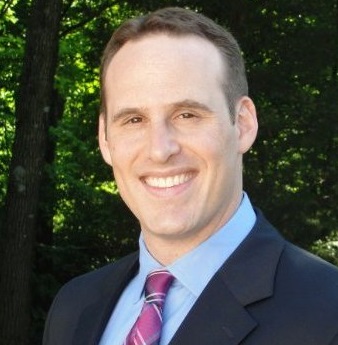Perhaps the greatest benefit of understanding our past is to find useful applications for the future.
Nearly two decades ago, having recently retired from collegiate wrestling, I was presented an opportunity to become the coach of a local high school wrestling team.
At the time the opportunity seemed to be a way to continue my connection with the sport that I loved. What I would realize much later is that the coaching experience would provide the foundational insight in designing and sustaining an innovation facilitator network.
Within the first few weeks of assuming coaching responsibilities, I discovered that providing individualized attention to a group of more than 20 high school boys, each with varying levels of ability, learning styles and motivations, would be an impossible challenge for a single person. As I agonized over how to best serve the needs of both the team and the individual, a critical insight presented itself.
One afternoon before practice had begun, I spotted two wrestlers, a talented senior and an inexperienced freshman, drilling techniques that I had been teaching the previous day. While they alternated turns practicing the technique, I noticed that the senior was routinely stopping and giving coaching tips. And as they progressed, I noticed that the freshman was executing the technique with increasingly better precision each time.
This unexpected peer-coaching system seemed to boost his performance in ways I had never considered. In that instant the association of the Montessori educational model popped into my mind. In this model, older, more experienced children undertake the role of teacher to assist younger, less experienced kids while reinforcing their skills through teaching.
Until that point I had assumed that coaching and instructing should be entirely my responsibility. But with the right design, I soon realized that I already had an arsenal of additional coaches at my disposal.
The season progressed and we experimented with buddying up the more experienced kids with the less experienced ones. And what I observed was that the more experienced youngsters vastly improved when they were forced to not only “do” but to also teach. For most of the less experienced kids, improvement by working one on one with an expert came with time. Over the course of the season there was considerable improvement from both the experienced and inexperienced wrestlers.
While this makes for a nice story about high school athletics, it begs the question whether this Montessori-style approach would have applicability in another domain, such as a corporate environment with adult professionals. And over the past couple of years I have been able to explore this question as a codesigner of an innovation program within a Fortune 100 organization.
One of the key elements in the innovation program is that innovation teaching and facilitating are led by internally trained facilitators who are distributed across businesses and markets. While recruiting and training these facilitators were no small feats, the resilience of the program truly rested on the innovation team’s ability to provide ongoing coaching and skill development for our global network of facilitators. And while the ratio of innovation team members to internal innovation facilitators was prohibitively disproportionate, we faced a fundamental challenge in sustaining the skill level of the network and program.
Borrowing from the insights of coaching, we began to run a couple of small experiments by creating our own Montessori-like system for facilitators. Internally hiring a few full-time facilitators from within our network of facilitators, we began to buddy up our volunteer force of facilitators with the full-time facilitators.
The full-time facilitators would take the lead on projects and teach the developing facilitators what “good looks like” in designing and leading a session. And after each session, the new facilitators would be prompted to “pay it forward” to other facilitators by codelivering sessions with other upstart facilitators.
While creating the right environment and infrastructure has been instrumental in enabling the network to grow, it has been the mind-set of helping one another improve that has made the greatest difference. In so doing, we have begun to create a way to continue to train, develop and sustain our innovation facilitator network and the backbone of the program.
In looking back on my coaching experience, my wrestling team did not go on to win a state championship or shatter team records. Crowds of fans didn’t miraculously start showing up at every match or holding pep rallies in the parking lot.
But what did happen is that the team substantially improved and set in motion meaningful change that would take root in the years to come. The mark of success for any program is not all the pomp and circumstance that comes from the launch of something fresh and new. Rather, the true mark of success is the subtle change in the collective mind-set of your colleagues that only becomes noticeable after most of the hard work has been done.
Dan Seewald is director of worldwide innovation at Pfizer.








